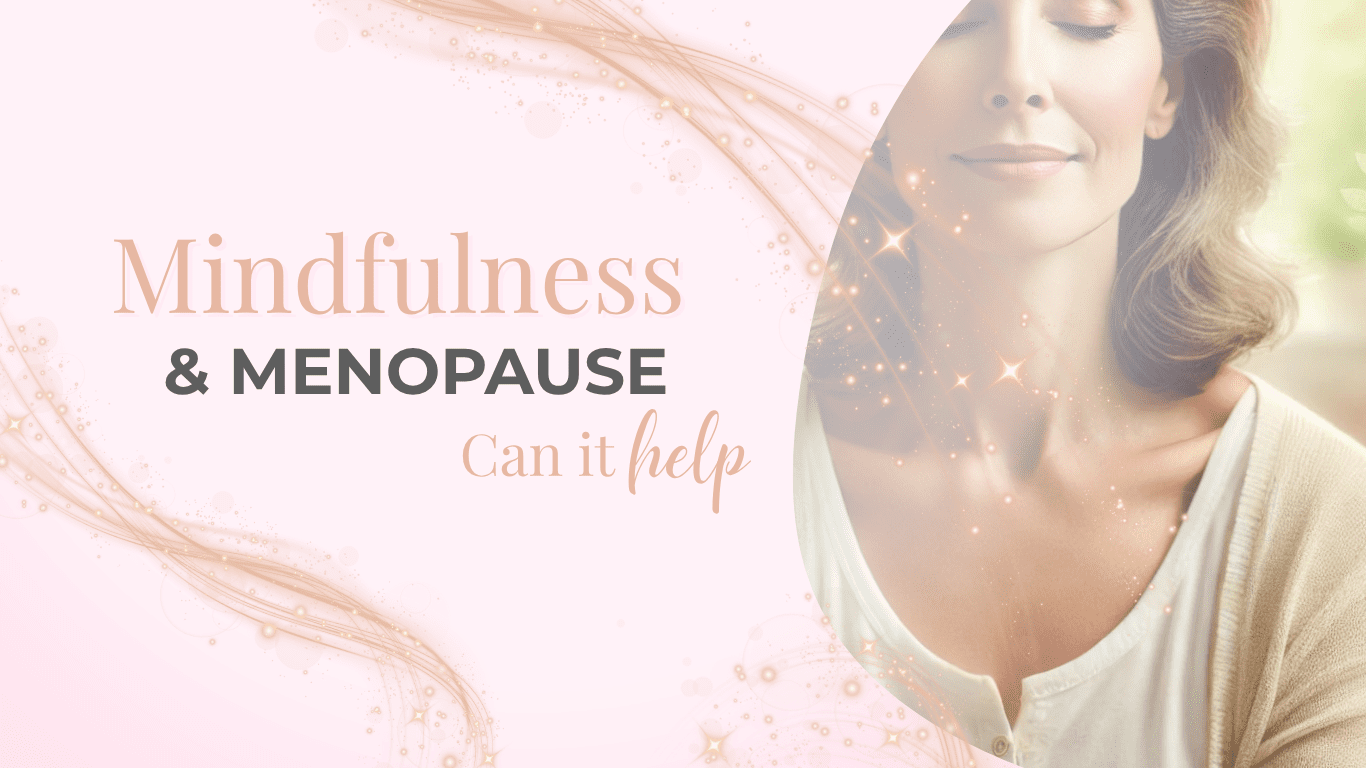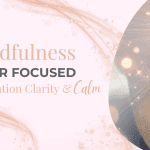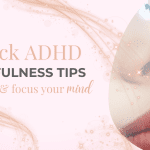Small Steps to Find Balance
Menopause is a big life shift—but it doesn’t have to sweep you off your feet (or rob you of sleep, sanity, or your car keys… which are definitely in some pocket or drawer). From night sweats and brain fog to mood swings and anxiety, the physical and emotional changes can be a lot to juggle.
The good news? You don’t have to power through it alone—or pretend it’s all fine when it’s clearly not. Mindfulness is a simple, natural tool that can support your mind and body through menopause, helping you feel more steady, even when your hormones are throwing curveballs.
This isn’t about being zen 24/7 or mastering lotus pose on a mountain top. It’s about learning gentle, doable practices that reduce stress, improve sleep, and help you feel more like yourself again—even if that self sometimes forgets why she walked into the kitchen.
Let’s take a kind, honest look at how mindfulness and menopause can go hand in hand.
What Is Mindfulness?
Mindfulness is the skill of paying attention to the present moment with curiosity and kindness—rather than judgement or panic. It’s about noticing what’s going on in your mind, body and emotions without trying to fix or fight it all.
For women navigating menopause, mindfulness can be a quiet anchor in the storm, helping to soothe the nervous system, support emotional balance, and reconnect you with a sense of calm (even if the dog’s barking and your to-do list is giving side-eye).
How Mindfulness Supports You Through Menopause
1. Eases Stress & Anxiety
Hormonal changes during menopause can amplify stress and make ordinary challenges feel a bit… too much. Mindfulness calms your stress response, lowers cortisol levels, and gives you back some breathing space.
Try this: Breathe in for 4 counts, hold for 4, and breathe out slowly for 6. It’s a pocket-sized practice that signals to your body: “You’re safe. You’ve got this.”
2. Helps with Hot Flushes & Night Sweats
Let’s be honest—hot flushes are no one’s idea of fun. But mindfulness can help you meet them with less frustration and more ease. Resisting the heat often makes it worse. Accepting it (gently!) can dial down the intensity.
Try this: When a hot flush strikes, take a slow breath and bring your attention to the sensation. Stay curious, not critical. You’re not broken—you’re adjusting.
3. Supports Better Sleep
Between night sweats and an overactive mind, sleep can become elusive. Mindfulness helps quiet the mental chatter and settle your body so you can rest (without having to try too hard, because that never helps).
Try this: A body scan before bed. Start at your toes and gently move your awareness up through each part of the body, softening as you go. Think of it as tucking yourself in with kindness.
4. Encourages Emotional Balance
Mood swings during menopause can feel like an emotional game of pinball. Mindfulness helps you pause before reacting, and meet your feelings with compassion instead of spiralling into them.
Try this: Name the emotion (“I feel overwhelmed”) and take a breath. You don’t have to fix it—just acknowledging it helps create space for it to pass.
5. Lifts Brain Fog & Improves Focus
Can’t remember why you opened the fridge again? You’re not alone. Brain fog is a common menopausal symptom. Mindfulness strengthens focus and clears some of the mental mist.
Try this: Focus fully on one task at a time—yes, just one. Whether it’s drinking tea or writing an email, single-tasking is a simple way to re-train your mind to stay present (and find your keys).
Getting Started with Mindfulness (No Perfect Zen Required)
Mindfulness isn’t about doing everything “right.” It’s about noticing, softening, and coming back to yourself—again and again. Here are a few simple ways to begin:
- Morning Mindfulness: Start your day with a few minutes of deep breathing or gentle stretches before the world gets noisy.
- Mindful Eating: Slow down and actually taste your food (yes, even the toast you’re eating over the sink).
- Walking Meditation: Pop outside for 5 minutes. Feel your feet on the ground, listen to the sounds, breathe.
- Gratitude Practice: At the end of the day, jot down three things you’re grateful for—big or small (like making it through the day without crying at an advert).
Little moments add up. There’s no need to overhaul your life—just sprinkle in a bit more kindness and awareness where you can.
A Kind Word to End On
Menopause is a natural part of life—but that doesn’t mean it’s easy. And you don’t have to muscle through it alone. Mindfulness offers a gentle, grounding way to care for your mind and body through the ups, downs and foggy in-betweens of this transition.
You don’t have to be perfect. You just have to begin—curious, kind, and open to what’s possible.
Want to explore more tools for mindfulness during menopause? You’re in the right place. You’re not alone, and you’re not broken. Let’s take this one kind step at a time.
Your Free KindfulnessToolkit for Calmer, Happier Days
If you’re ready for a quick, gentle way to feel calmer, brighter, and more like yourself again, the free Kindfully Calm Toolkit is for you. Inside you’ll find easy, no-fuss tools you can use in minutes to shift your mood, relax your body, and bring happier vibes to even the busiest day.
Don’t wait to feel better. Download here it now and give yourself the gift of calm and ease today.

For further reading What is living Mindfully



